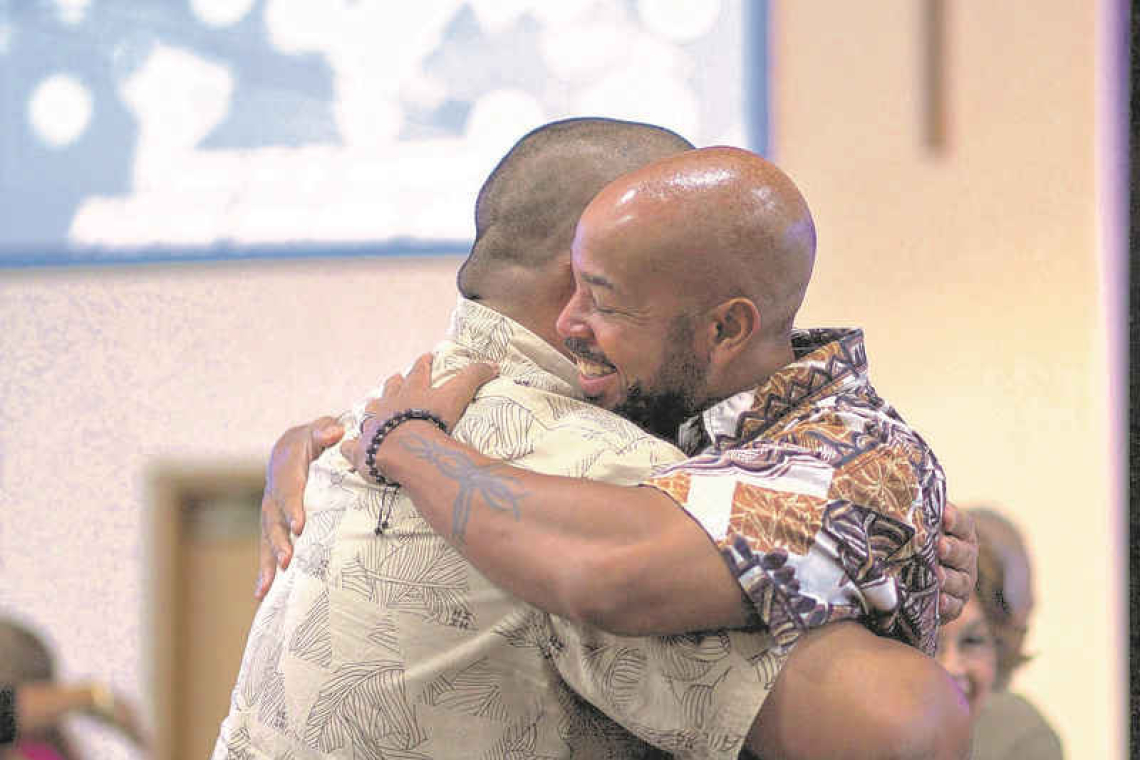By Jon Davidow MD and Colin Michie FRCPCH
“Never look down on anybody unless you're helping him up.” - Jesse Jackson
Chances are your broughtupsy was built in many layers. By family, home, schools, friends. They showed how to judge softly, sometimes walking in another’s trainers, understanding their point of view.
This inheritance, this communal rearing, is particularly important on small islands where we are particularly close and interdependent. Once we have learned to consider others, we can use these skills, this empathy and compassion, to cope with a traffic jam or a hurricane, a family disagreement or the challenge of dealing with an unwell neighbour. Taking the position of another, even if you disagree with them, can have surprising effects on health. Like daily fruit and vegetables, or vaccination, the processes of empathy and compassion can protect your health, as well as that of others. As Harper Lee wrote in “To Kill a Mockingbird”: “If you can learn a simple trick, Scout, you’ll get along a lot better with all kinds of folks. You never really understand a person until you consider things from his point of view, until you climb inside of his skin and walk around in it.”
Empathy as a word is just over a hundred years old. It describes part of a spectrum of how we interact with others, our emotional intelligence. One might pity someone: “I feel sorry for you”, or perhaps express sympathy: “I feel for you”. However if you express empathy, “I feel with you,” interactions change dramatically. You may take on their feelings, an emotional empathy. Or you might try to understand their thoughts and how they see things. These processes can become more practical if you become compassionate: “I am here to help”. And as Jesse Jackson described, you act.
Empathy has powerful effects. Those treated by empathic doctors or nurses show better recoveries, whether they suffer from a cold, high blood pressure or a cancer. Workers with stronger empathy have less burnout and greater personal resilience in their jobs. Teaching empathy to children helps them relate better with those around them, having a powerful calming effect. For specific groups of children with communication disorders of different types, teaching empathy improves their engagement and reduces their need for care. By using this power of mind over matter, health can be improved.
Those training health care workers now employ specific coaching methods to develop empathy. The healing art can be strengthened and honed with empathy in Hospitals, clinics and local groups. This effect is as beneficial as St Maarten’s sunshine when it is developed and nurtured in employees. The same methods have been found to work in schools, sports clubs, charities and board rooms. Successes on a pitch or stage, or even when being proudly nationalistic to visiting tourists, can all be enhanced by acquiring greater empathy.
Teaching empathy and compassion needs to be part of the broughtupsy of the next generation. They face new and different challenges, from climate change, population migrations, cancel cultures, global news, media exposure. All are likely to influence their health, physically and mentally. We can prepare them to be healthy, with empathy and compassion, by setting an example. Children watch us at home and in public, close-up and from a distance – what do they see?
Empathy increases once we become curious about others, paying attention and listening to them. Softening our approaches, increasing eye contact and becoming more aware of how they feel really helps. And this includes small children and adolescents we may meet too! Although it may be easier to be bossy, noisy and laying down rules, it is valuable to take time to understand what a child is feeling and thinking and why they are like that. How might you model good behaviors? From another angle, telling stories, reading fiction, considering art, finding and illustrating an inner hero in each child can change their perspectives. Sports, games, walks, pilgrimages, carnival all provide different ways of exploring and comprehending what makes us human.
Adolescents and many young children take a particularly keen interest in social issues. Problems such as bullying and domestic violence, racism and discrimination are rarely openly discussed in homes, particularly with those in the center of such traumas. Groups such as ‘Learning for Justice’ have laid out lessons and gritty cases that develop and use empathy by considering identity, diversity, justice and action. Teaching empathy is not just about teaching kindness.
We all are blessed to share this patch of earth and to build a society atop it. Our attitudes and actions contribute to what kind of society we build. Teaching empathy is a valuable method to improve our own health and that of our communities.
Useful resources:
Zerotothree.org
https://www.learningforjustice.org/







